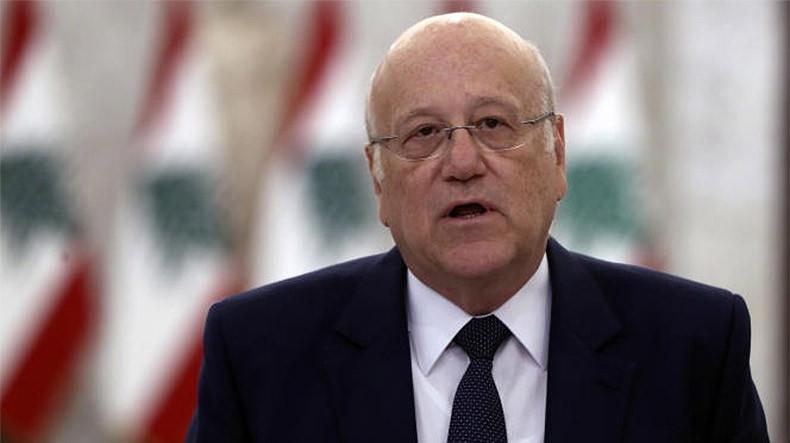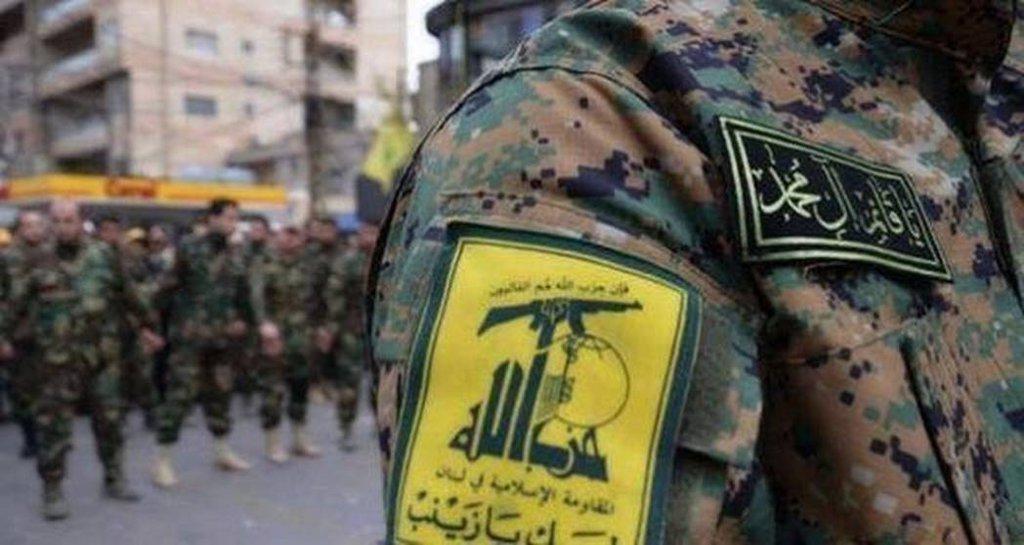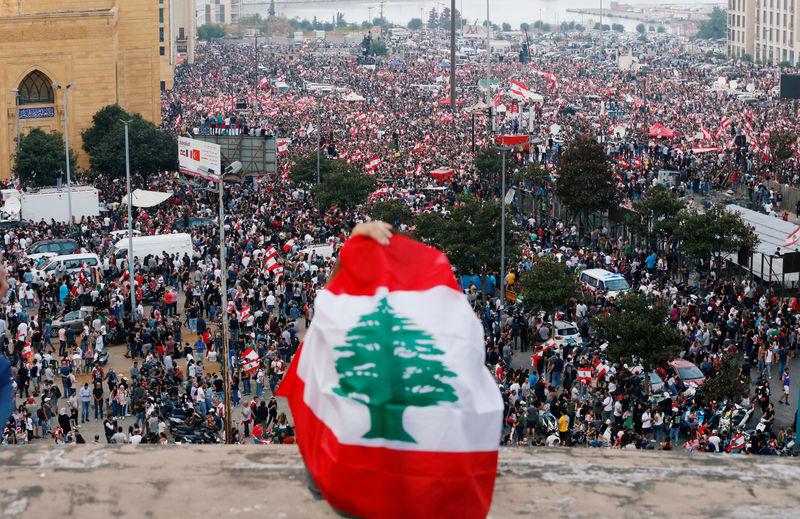Lebanon: Political crisis amid economic turmoil Analysis by Maksim Petrov
Lebanon's incumbent prime minister, multimillionaire Najib Mikati, was chosen by the Lebanese parliament to form a new government. This occurred nearly a month after the parliamentary elections.
The 66-year-old politician and businessman, a Sunni Muslim, and perhaps the richest man in Lebanon, received 54 votes from 128 deputies during the parliamentary debate. Most of the parties present in parliament did not nominate their candidates. The most successful entrepreneur in a bankrupt country, Mikati has already headed three governments since 2005.

After the vote, Lebanese President Michel [Naim] Aoun, a representative of Christian circles and the Free Patriotic Movement (SPD) party, asked Mikati to form a new government. In addition, the pro-Iranian Shiite group Hezbollah used all its influence to promote Mikati. In short, not only some Sunni groups are behind this politician, but also large forces in the Shiite and Christian camps. Not to mention his own capital.
There are two major political coalitions in Lebanon, each of which includes parties associated with the main ethnic and religious groups of the country - Sunnis, Shiites and Christians. One of them is pro-Saudi and pro-European. It is opposed by the pro-Iranian coalition, which includes Hezbollah and the SPD. At first glance, it looks like it is the pro-Iranian coalition that will form the country's government. However, according to analysts, the formation of a new government may take months - Lebanon is in a deep economic and political crisis, so it will be extremely difficult for the current parties to agree on the composition of the government.
There are several components of the crisis.
Firstly, the pro-Iranian coalition that nominated Mikati was defeated in the elections, losing its majority in parliament. But the Christian group hostile to Hezbollah, which has repeatedly engaged in armed clashes with it, led by Samir Jaja, has achieved success, expanding its influence and won 19 seats; it has become the largest party in parliament. Taking into account the fact that the forces of supporters of Mikati's appointment are deprived of a parliamentary majority, the bargaining on the appointment of certain ministers in the new government promises to be long and is unlikely to be effective.
Israeli military and political analyst Jonathan Speier points out that "the central component of Lebanese political life has become the growing dominance of pro-Iranian interests represented by Hezbollah and its allies. The strengthening of Hezbollah has led to an almost complete rejection of support and investment from the Gulf countries. Lebanon became the first country to which the Iranian model of absorption of Arab countries was extended. This model can only be applied to countries that are already in a state of crisis and fragmentation".
The Iranian model of influence means the formation in a country with a large Shiite community of a parallel state system within this community, funded by the Iranian government. It includes social services, political groups and armed militias. Such a system, as the experience of Iraq and Lebanon shows, is capable of destroying and weakening the official state from within, forcing it to pursue a pro-Iranian policy.

Secondly, although Hezbollah has only 13 seats out of 128 in parliament, it retains control over Lebanon. The pro-Iranian group has the most powerful armed formations in the country, and it also controls part of the army and other key security structures in Lebanon. But the weakness of Hezbollah and its Christian ally Aoun is that the majority of the population opposes them. And it's not just those who came to vote. About 60 per cent of Lebanese ignored the elections. They simply do not see the point in participating in a process that gives real power not to them, but to party leaders and millionaires, as well as to the leadership of Hezbollah and its militants.
Thus, in addition to the political crisis, there is a social crisis in the country. The huge protest movement of the working population that swept Lebanon in the fall of 2019 included representatives of all ethnic and religious and national communities - Shiites, Sunnis, Christians, as well as migrants and refugees from Syria and Palestine. Its participants demanded work, free or cheap utilities, and an end to corruption. Although the movement was suppressed, its outcome was the growing aversion of the Lebanese to all parties. The protest mood has not disappeared and it can also affect Lebanese politics in the present and future. In this case, we are talking not so much about political as about social or class confrontation. The lower classes of society distrust the upper classes and are ready from time to time for radical protest actions, including even armed demonstrations against those in power. But this movement has not created any systems of counter-power in the face of grassroots self-government bodies. It remains spontaneous, chaotic and fragmented.
The third factor introducing uncertainty into the public life of Lebanon is the deepest economic crisis since the 19th century.
In 2020, Lebanon defaulted on its debt. This led to a sharp rise in prices, while the local currency lost about 90 per cent of its value. Inflation has reached 239 per cent. According to the UN, four out of every five Lebanese live below the poverty line. There is not enough fuel in the country, electricity is periodically cut off. An explosion in the port of Beirut in August 2020, killed hundreds of people, devastated the city, and damaged thousands of buildings. It was caused by the negligence and corruption of officials. The perpetrators were never punished, because Hezbollah, under whose control the port was located, blocked the investigation.
Lebanese political analyst Dana Khatib points out that the corrupt elite is running out of time to carry out economic reforms.
"Lebanon will be plunged into darkness in the autumn. The validity of the deal, under which Iraq supplied a million tons of fuel oil to the country over the past year, is about to expire, and Baghdad does not want to extend it. In the Lebanese parliament, despite the relative success of the protest candidates in the elections in May, the established elite will block any attempts to implement the reforms required by the IMF - reforms that could initiate the country's much-needed financial assistance," she writes.
The IMF is ready to provide Lebanon with a $3 billion loan in exchange for economic reforms, but there are great doubts that the country will carry them out. Lebanon's political parties are run by wealthy families who control various government services, as well as banks. Part of the budget is appropriated by them at a time when the economy is paralysed. However, it is not only the unwillingness of Lebanese politicians to change anything, but also the lack of the ability of the country's political class to quickly form a government that enjoys the trust of society, ready for serious changes in economic policy.
There are other components of the economic crisis. Lebanon has long been dependent on Syria, whose leadership kept large amounts of money in the country's banks. Today, the regime of Syrian President Bashar al-Assad is under the most severe American sanctions ("Caesar's Law") and Lebanon cannot receive funding from this source. There is currently no hope for sanctions relief.

Lebanon used to depend on the investments of the Sunni monarchies of the Persian Gulf. But these countries are involved in a confrontation with Iran, which now politically dominates Lebanon, so it is not necessary to count on serious investments from the UAE and Saudi Arabia.
Finally, Lebanese banks have long been an important, if not a key sector of the economy. Using money transfers from millions of Lebanese living abroad, they secured high profits and could effectively borrow money from the local population at high-interest rates. But after the default, banks are in a deplorable state and these financing opportunities are also limited or have disappeared altogether. However, if Lebanon still somehow survives, it is largely due to emigrants who continue to send money to their relatives.
Summing up, we can say that as a result of the elections in Lebanon, a parliament was formed, devoid of public support and at the same time unable to reach a consensus on any issue. But the worst thing is that new waves of the economic crisis are coming to the country at a time when the social grassroots do not have strong mechanisms of self-government capable of changing public life for the better, and politicians and parties associated with the ruling circles are deprived of the opportunity to make any adequate decisions.








